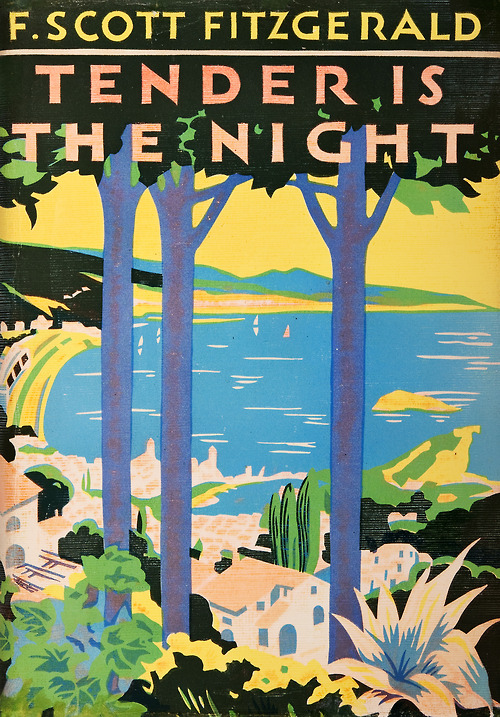Our book group for February 2007 is Tender is the Night by F. Scott Fitzgerald. Set in the French Riviera during the twilight of the Jazz Age, the novel chronicles the rise and fall of Dick Diver, a promising young psychiatrist, and his wife, Nicole, who is one of his patients.
The novel opens with Rosemary Hoyt, a 17-year-old actress, and her mother staying at a resort in the South of France. Rosemary is immediately drawn to Dick Diver, a handsome and charismatic man who is married to Nicole. Nicole is a beautiful woman who has suffered from mental illness since childhood. Dick is her doctor, and he has helped her to recover to the point where she is able to live a relatively normal life.
Rosemary becomes infatuated with Dick, and she soon becomes part of the Divers’ social circle. She witnesses the couple’s glamorous lifestyle, but she also begins to sense that there is something wrong. Nicole has occasional relapses, and Dick is starting to show signs of alcoholism.
As the novel progresses, the Divers’ marriage begins to deteriorate. Dick becomes increasingly dependent on alcohol, and he is unable to cope with the demands of his medical practice. Nicole’s mental illness worsens, and she becomes increasingly dependent on Dick.
Discussion Questions
- How would you describe the characters of Dick and Nicole Driver? What is the nature of their marriage? Do they love one another? Talk about how and why their marriage changes during the course of the novel?
- Talk about Nicole’s psychological state? Why did Dick marry her? As his patient, their relationship most likely would be viewed today as a violation of the the American Psychiatric Association’s (APA) code of ethics. Why would marrying a patient concern the APA? How does Nicole’s mental illness affect their marriage?
- What do you make of Rosemary Hoyt? Is she a “provocateur” with regards to the Drivers’ marriage? Would you describe her as innocent, aggressive, duplicitous…or as a young, naive American out of her depth? Why is Dick Driver attracted to her? What, if anything, does she offer him? What does it say about Rosemary that she is also attracted to Brady right after professing her love for Dick?
- Rosemary encounters two parties on the beach at the beginning of the book. What is the distinction she makes between the two—and what do two circles represent? What is your opinion of the two groups?
- The book is concerned with the differences between Americans and Europeans. How does that difference present itself? Would you say that Dick is more European or more American?
- The narrator refers to French Mediterranean Coast as a region in a state of flux. How so?
- The book’s narrator identifies with Rosemary in the first part of the novel. Thus we see the characters through her perspective. Starting in Book 2, however, the narrator is allied with Dick Driver…as we follow him into his decline. Why would Fitzgerald have used two perspectives?
- Hollywood is, of course, the capital of acting. How does “acting” become a theme throughout the novel? Who besides Rosemary acts? What does Hollywood as “the city of thin partitions” mean? How might that descriptive phrase apply to the main characters?
- How does McKisco change after the duel…and what inspires the change? Talk about the juxtaposition of his rise with Driver’s fall.
- What is the significance of the scene in the restaurant, where the Drivers, Norths and Rosemary measure the “repose” of American diners? How does “repose” reflect on Americans’ ability to maintain elegance and dignity? Are those qualities important?
- In what ways can Dick be considered a father figure for women? Would you say he has a need to fulfill that role?
- Does Nicole ruin Dick’s potential to become a great psychiatrist? In other words, did she ruin his career…or is he the cause of his own downfall?
- By the end of the novel, Nicole seems to have achieved a healthy mental state. Is Dick responsible for her cure?
- Who loves whom in this book? Do Dick and Nicole love one another? Does Dick love Rosemary? Does Nicole love Tommy Barban?
- Critics and scholars see Tender Is the Night as partially autobiographical, tracing F. Scott’s and Zelda’s marriage. Do a little research and discuss how the book parallels the Fitzgeralds’ own lives.
- Does Dick’s disappearance in America resolve any problems raised in the novel? Why would Fitzgerald have ended his story in this way? Do you find the ending satisfying…or would you have preferred a different one?

